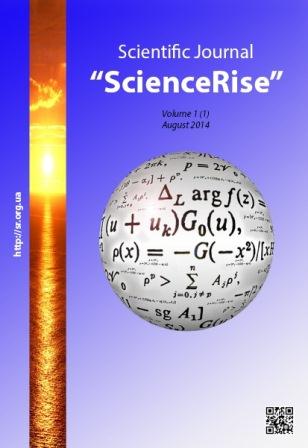Влияние предпламенных реакций на продолжительность индукционного периода сгорания топлива в двигателях внутреннего сгорания
DOI :
https://doi.org/10.15587/2313-8416.2014.26381Mots-clés :
индукционный период, скорость сгорания, предпламенная реакция, физико-химические свойства, углеводородное топливоRésumé
Мы представляем математическую модель расчета продолжительности индукционного периода сгорания на основе учета теплофизических свойств и концентраций компонент углеводородного топлива, скоростей предпламенных реакций и энергий активации. Это позволяет доказать возможность использования низкосортных топлив путем регулирования скоростей рекомбинации активных радикалов.
Références
Voinov, A. N. (1977). Combustion in high-speed reciprocators. Moscow, USSR: Engineer, 277.
Levinshpil, O. (1969). Engineering registration of chemical processes. Moscow, USSR: Chemistry, 620.
Kondratiev, V. N., Nikitin, E. E. (1974). Kinetics and mechanism of gasphase reactions. Moscow, USSR: Science, 558.
Semenov, N. N. (1934). Chain reactions. Leningrad, USSR: LHTI, 555.
Emanuel, M. M., Knorre, D. G. (1972). Course of chemical kinetics. Moscow, USSR: Metallurgy, 288.
Portnov, D. A. (1963). High-speed turbine-reciprocators with a self-ignition from the compression of technology. Moscow, USSR: MachGis, 640.
Ischuk, U. G. (1984). The use of theory of RRKM is in the calculations of period of delay of self-ignition of technology. Leningrad, USSR: Ship energy and fuel is the use, 30-42.
Frank-Kameneckiy, D. A. (1987). Diffusion and heat transfer is in chemical kinetics. Moscow, USSR: Science, 490.
Zlotin, G. N. (1986). Use of gas runback in the diesel of D–21 at combined mixture formation of technology. Moscow, USSR: Propulsion engineering, 7 – 10.
Astshov, I. V. (1972). A serve and nebulization of fuel in diesels. Moscow, USSR: Engineer, 359.
Téléchargements
Publié-e
Numéro
Rubrique
Licence
(c) Tous droits réservés Людмила Владимировна Кнауб 2014

Cette œuvre est sous licence Creative Commons Attribution 4.0 International.
Our journal abides by the Creative Commons CC BY copyright rights and permissions for open access journals.
Authors, who are published in this journal, agree to the following conditions:
1. The authors reserve the right to authorship of the work and pass the first publication right of this work to the journal under the terms of a Creative Commons CC BY, which allows others to freely distribute the published research with the obligatory reference to the authors of the original work and the first publication of the work in this journal.
2. The authors have the right to conclude separate supplement agreements that relate to non-exclusive work distribution in the form in which it has been published by the journal (for example, to upload the work to the online storage of the journal or publish it as part of a monograph), provided that the reference to the first publication of the work in this journal is included.

